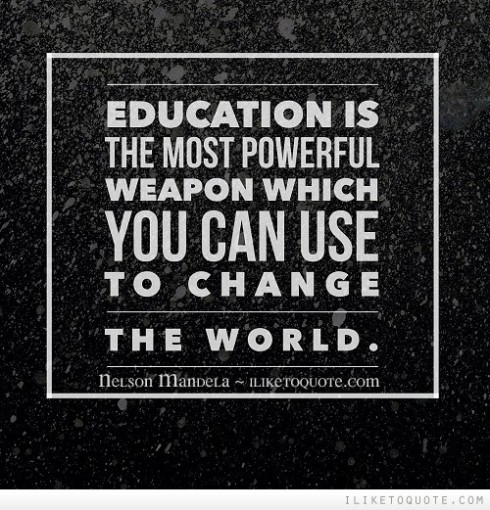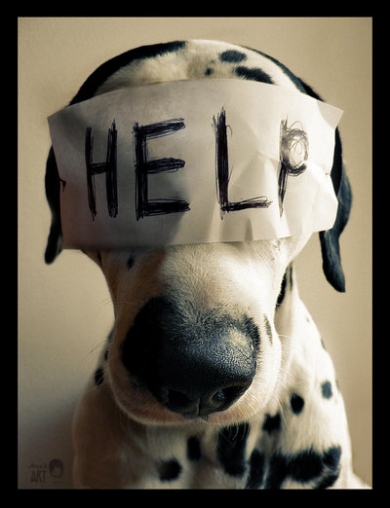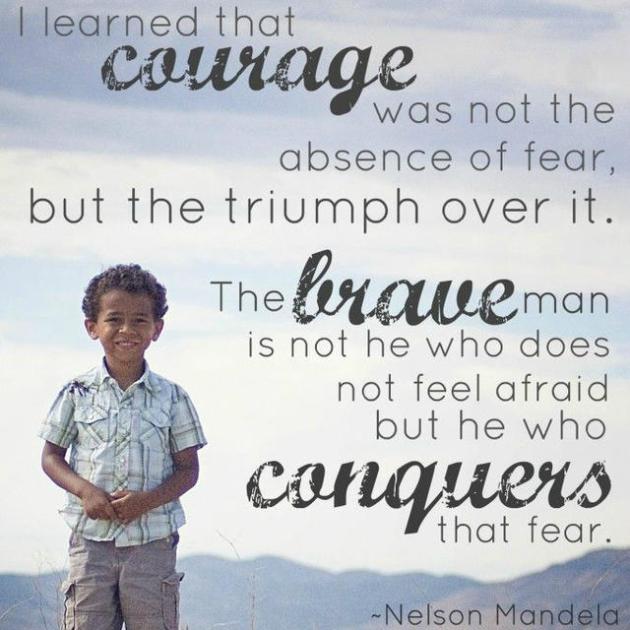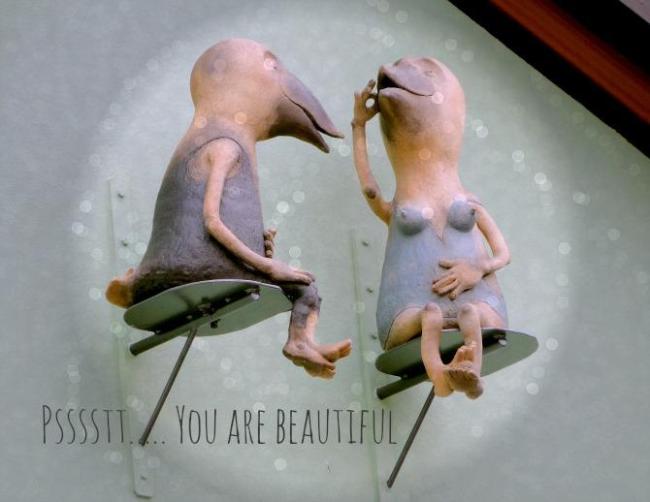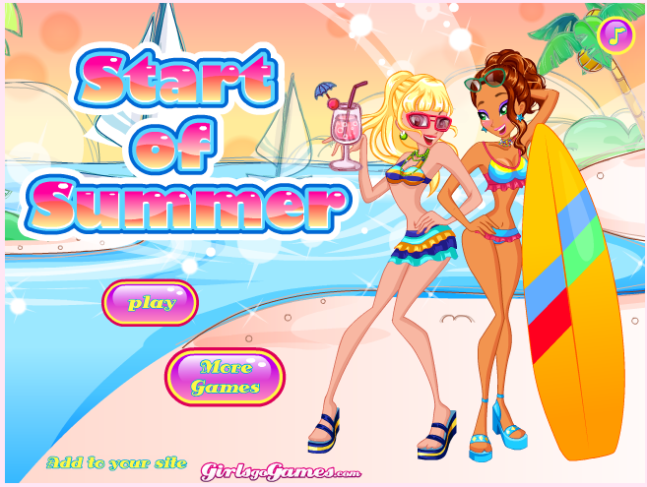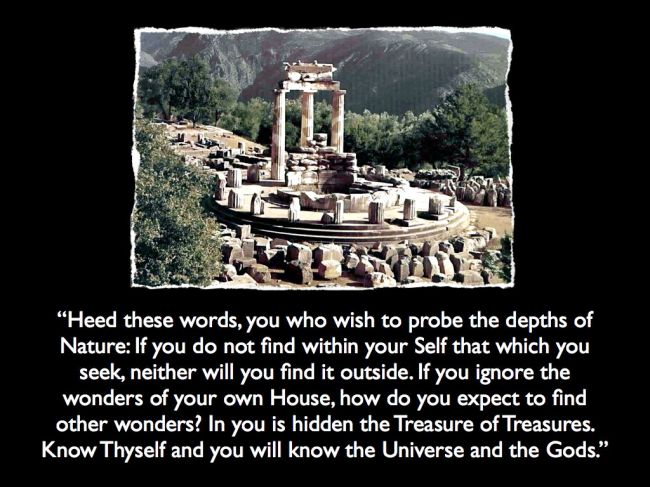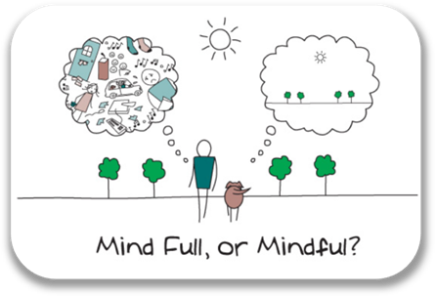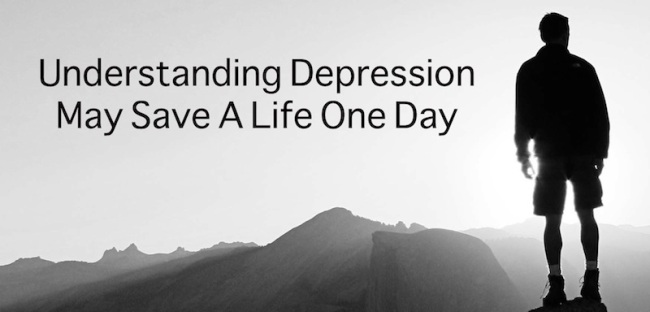
When I found the picture above, I thought oh Jan that’s a bit corny! But when I thought about it a little more, it’s actually a very truthful statement. I have been the significant other of a person with full blown clinical depression and to this day he would tell you that I saved his life. I always shied away from that but in seeing the talk that I’m going to write about here, I now have an clearer understanding of the role I played and why it was so important to his well being. It comes down to me being present and willing enough to try and understand his world. Had I not, on reflection, I’m not sure he would still be here.
As you will see and read here, understanding is the very thing that is missing when comes to depression and none more so than with adolescents. They have so much going on that it’s easy to put it down ‘a phase’ they are going through, when in actual fact it can be so much more, and without understanding it, it may well have dire consequences. It’s another huge frontier for parents!
Sorry, a bit of a heavy start but mental health isn’t exactly a light subject!
Back in mid June this year, a friend and I went to this talk in the heart of Melbourne. It’s called a Lunchbox/Soapbox and it’s conducted by the Wheeler Centre. It’s such a great forum for all sorts of things! (see the link below). But on this day we went to see Dr. Michael Carr-Gregg. He is an amazing man who has dedicated his career to understanding and helping adolescents who suffer with mental health issues. He clearly has a deep love and passion for this work and spoke in a way that was completely accessible and empowering. He said his aim “in all his writings is to increase the emotional literacy of mums and dads and adult carers and to explain what they can do when their teenagers do in fact, lose their psychological moorings.”
Here is a overview of what he spoke about and I’ve included the link so you can watch if for yourself. Please do, having seen it more than once now, it is very potent. The case study is pretty disturbing but certainly made me sit up and take notice…
Just a note of warning, this blog and talk does include the issue of teen suicide so please exercise personal discretion.
Here’s a big statistic and this is how the talk began…..75% of all psychological problems in human beings begin before the age of 24.
Each year in Australia, 300 young people take their own lives.
He told us the story of Hannah. The 3rd of 5 children. She had a happy childhood and adolescence, not without challenges but managed well. She enjoyed music, both listening to and playing it. She engaged in sport and writing, including journals. Hannah had simple tastes, not big on fashion and good relationships with her parents and siblings. She had a spiritual faith, was involved in a youth group, and did some teaching at sunday school. She worked part time, and enjoyed going to parties and the beach with friends.
She “appears to have a solid base of warmth, friendship and love. All of which should have been a potent and positive amulet, a countervailing force against future unhappiness. But all of this unravelled and eventually she slipped her psychological moorings and succumbed to a savage, lacerating depression.” It would have been a ‘herculian’ effort to keep up the facade. It was only after she died that her family found journals that described what was really happening for her, “where she no longer found anything in life remotely interesting or enjoyable or worthwhile”. She tried to handle it by herself and tried to ‘wish’ the dis-ease away. There were few outward signs to anyone. Not friends, family, or siblings.
I don’t know about you but that knocked me for six! What a full on and tragic account of a girl’s life. Sadly though, she isn’t alone.
Dr Carr-Gregg says people who commit suicide see it as a problem solving device – If I’m not here, my problems aren’t here. Most people who kill themselves in this age group, have depression and are often undiagnosed. He says “it’s a chemical imbalance in the brain, and no amount of love and caring or trying to build their self esteem will change their perception that their situation is hopeless.” He said “the unpalatable truth of the recognition of mental issues in young people is still unacceptably low”, not just by parents and schools but also by peers.
It’s estimated that 30% of young people who have psychological problems will seek help and that 50% of the most serious cases NEVER seek help.
This is in part due to what he says is the ‘ostrich mentality’ – we notice something strange going on with teenagers but out of ignorance or fear, hope it’ll go away or we put it down to a typical teenage phase and ignore it. However the longer it’s ignored, the harder it is to treat, and it’s still not taken seriously in 2013 because you can’t ‘see’ the signs of it and through ignorance, stigma and prejudice it’s still not seen as a genuine illness.
THE GOOD NEWS!
The vast majority, 60-70% of young people get through adolescence with no major problems.
However, as parents, knowing the fine line between normal behaviour and warning signs for mental health issues is not always easy. But here’s a list of what to look for…..
8 KEY SIGNS
- Long standing feelings of unhappiness, moodiness and in particular irritability, accompanied with a sense emptiness and numbness in conjunction with the other symptoms (listed) for a period of 2 – 3 weeks continuously. This is more than just adolescence, it deserves diagnosis and assessment.
- A young person who formerly enjoyed life suddenly loses interest and pleasure in activities that once gave them a wonderful feeling.
- Loss of appetite, or weight, or particularly in girls, over eating, trying to manage their mood with food.
- Can’t sleep. Teenagers are the most sleep deprived segment of the population. Depressed teenagers struggle to get to sleep and wake frequently during the night. They can get stuck in a pattern of waking early at 4 or 5am and can’t get back to sleep because ironically, they are too tired to fall asleep again. There’s hypersomnia too, where they can’t get out of bed and sleep all day.
- Feeling bad, worthlessness or guilt.
- Self critical, self blaming type of behaviour.
- Difficulty concentrating or making decisions (par for the course for young people at this age but not if they have all these other symptoms as well).
- Preoccupation or obsession with dark and gloomy thoughts that include suicide.
Another scary statistic…..and why is it so that
1 in 4 secondary school children are diagnosed with depression
1 in 7 primary school children?
Advertising, celebrity, internet and pornography is pressuring them to grow up too soon. “Our 18 is their 14, our 14 is their 10”.
Dr Carr Gregg says “never has growing up been under such a sustained assault”. The pressures of marketing are ‘all sewing the seeds of body hatred. Little girls and little boys did not grow up hating their bodies….hating the world”. Marketing companies around the world have sold the message that ‘your looks are the most important thing about you’.
When you ask the question why is all this happening and what can we do, he says….
GO BACK TO THE PARENTS …. “equip them with the skills, the knowledge and strategies so they can become the world experts of their sons and daughters to intervene early.”
Not filmed but afterwards, there was question time. Dr Carr-Gregg was asked about medication and the push to see psychologists given the power to prescribe it. He flatly said he didn’t want that power and wouldn’t like to see it introduced. He said in the vast majority of cases with young people, mental health issues could be managed and dealt with without the use of medication. Instead, he would prescribe CBT (Cognitive Behaviour Therapy) and mindfulness techniques. He said there were some cases, like the one he described with Hannah, that no amount of talking (or skill or charm on the part of the psychologist!) or techniques would have helped in that acute stage. Medication would be used to help normalise the situation for the young person so they would have the capacity to see things more clearly and not through the dark lens of depression.
So where does that leave us? I don’t even have a teenager yet! What I did get from this talk however, and it links back to my last post on introversion, is the need to connect and understand my children. For me, my efforts go in that direction now so when we do hit the teen years, the ride might not be quite so rough. Right? Well that’s all I can hope for! I think this is the case in point for me because while there are lots aspects of my daughter’s nature that are like me and I completely get, there are others, like the introversion, that I don’t. So what if you are a go goer, amazing sales person and your child is super sensitive and doesn’t appear to have any get up and go? I think this behoves us to look at positive, constructive ways to build bridges between my world and my understanding of the child and what is ACTUALLY going on inside their world. Hopefully the lines are open so when the tough gets going and like I said in my first post – we all know it will! – they are not feeling so isolated in their own world that they can’t find a way to communicate it. I could be way off base, as I’ve no experience of it yet as a parent. I can also appreciate the adolescence that I went through will be VERY different to that which my children face.
Am I way off base? I’d love to hear from those of you who have teenagers or have navigated that path already and are on the other side it. Maybe you are a young person, beyond adolescence. I would love to get a perspective on what’s helped, what didn’t, what was missing, what would you have done differently?
Dr Carr-Gregg suggested, in the question time, to use a online personality test so as get a better understanding of the type of personality your child is. In writing that it feels a bit weird, (really a Myers Briggs for kids?) but in the absence of a manual, any tool that can be added to my back pocket, I’d be grateful for the use of! I haven’t found a good one yet so I’ll post it when I do, but if you have any experience of that kind of thing, please let me know so we can share it with everyone!
The last thing I wanted to add is that I know psychology isn’t everyone’s cup of tea. There are loads of things that fill out the picture as to why someone ends up with a mental health issue and equally as many ways of approaching its treatment but as a starting point to this conversation, I think this is a really intelligent one.
Here’s the link to the talk, along with Dr Carr-Gregg’s website and the Wheeler Centre.
Looking forward to your feedback!
Cheers,
Janet
http://wheelercentre.com/videos/video/lunchbox-soapbox-michael-carr-gregg-on-parenting-adolescents/
http://www.michaelcarr-gregg.com.au/index.shtml
http://wheelercentre.com/
